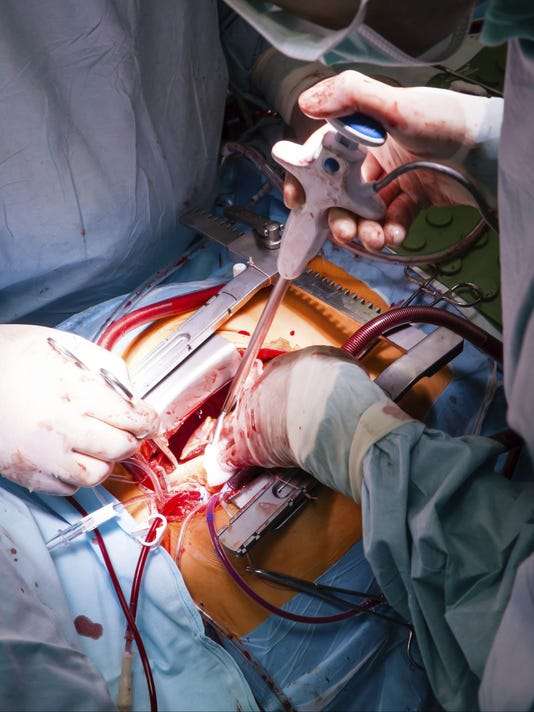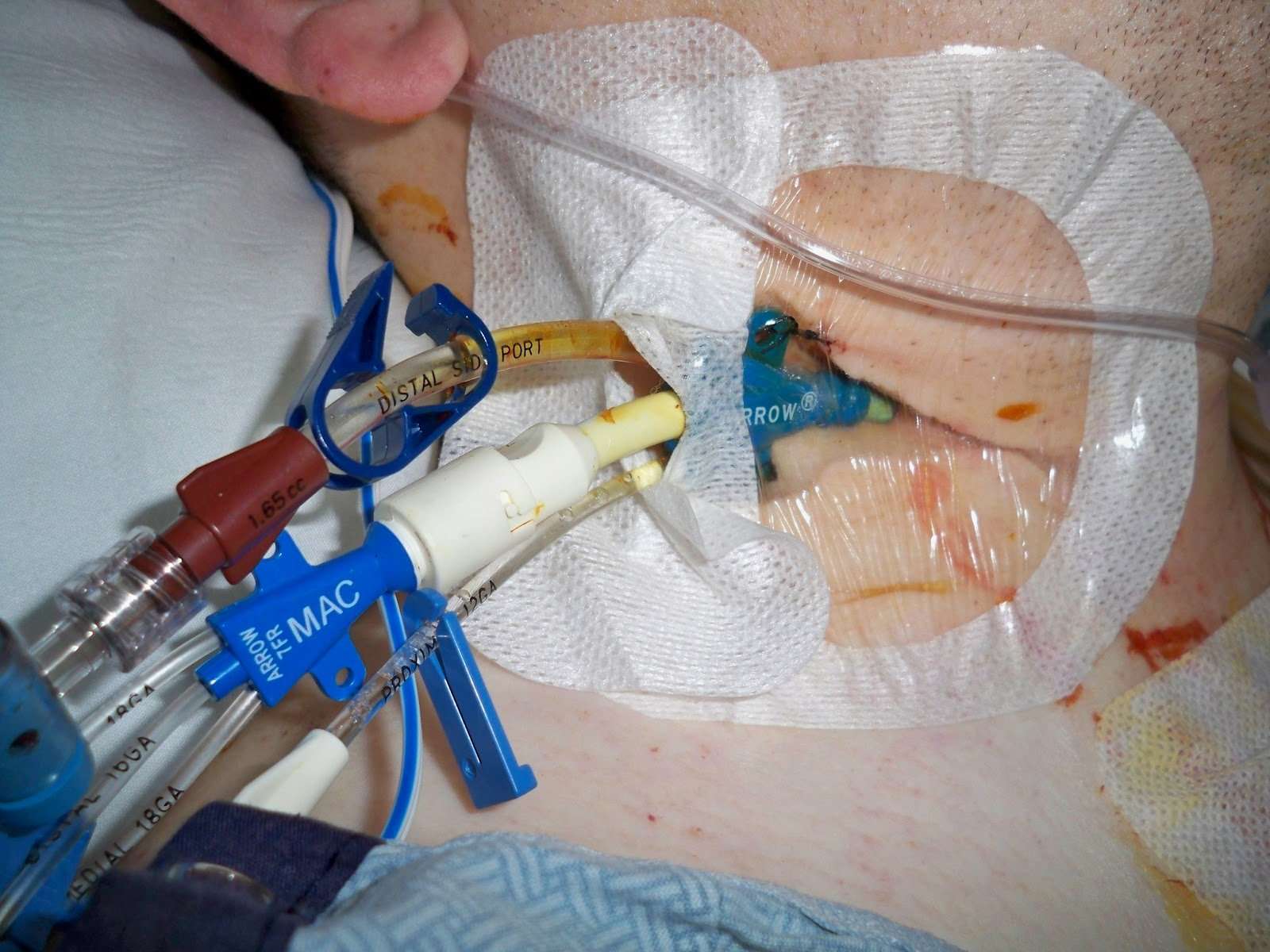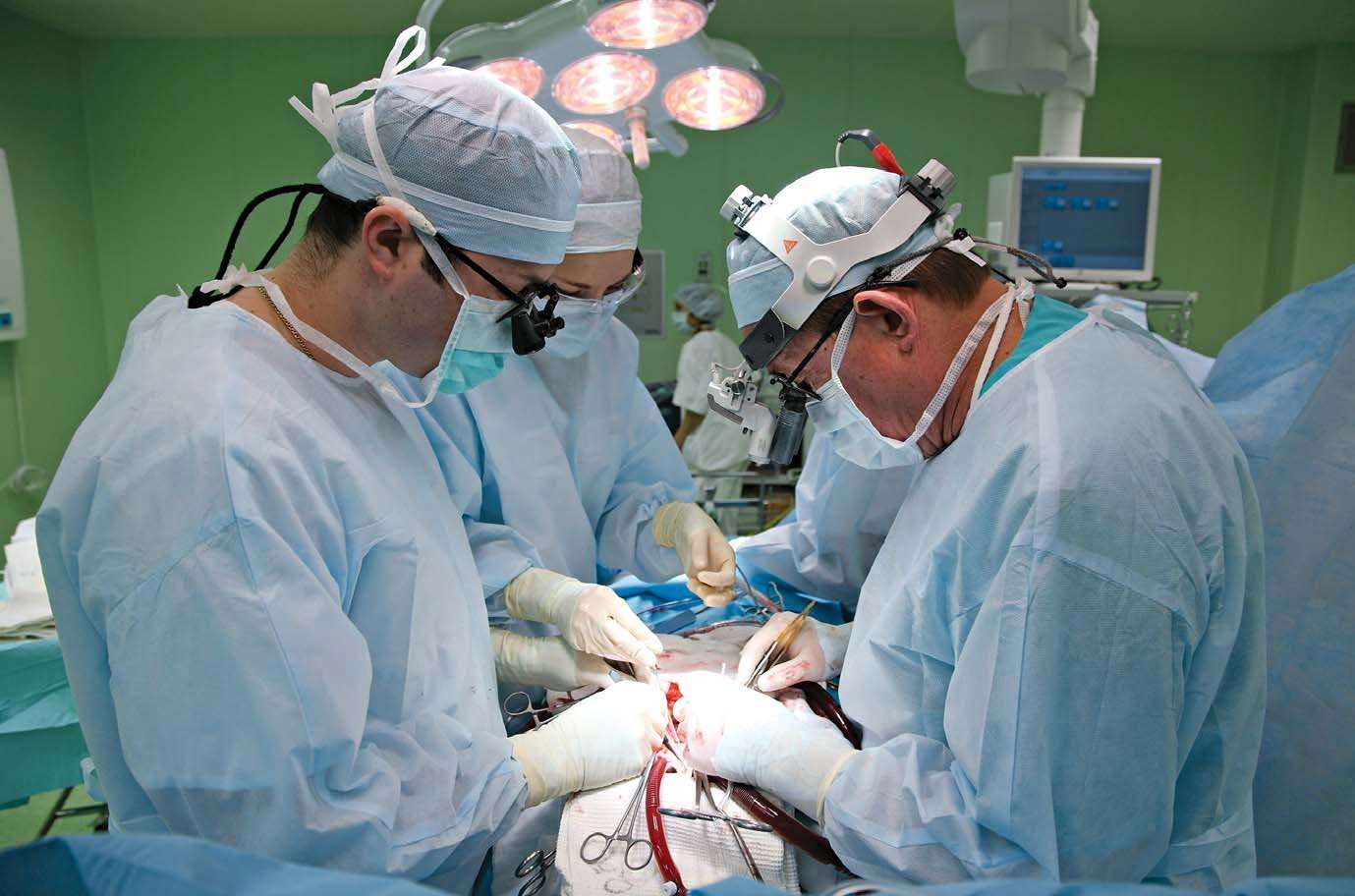Heart Valve Repair Or Replacement Surgery
The heart is a pump made of muscle tissue. It has 4 pumping chambers: 2 upper chambers, called atria, and 2 lower chambers, called ventricles. Valves between each of the heart’s pumping chambers keep blood flowing forward through the heart.
- Tricuspid valve. Located between the right atrium and the right ventricle
- Pulmonary valve. Located between the right ventricle and the pulmonary artery
- Mitral valve. Located between the left atrium and the left ventricle
- Aortic valve. Located between the left ventricle and the aorta
When valves are damaged or diseased and do not work the way they should they may need to be repaired or replaced. Conditions that may cause heart valve dysfunction are valve stenosis and valve regurgitation .
When one valve becomes stenotic , the heart has to work harder to pump the blood through the valve. Valves can become narrow and stiff from infection and aging. If one or more valves become leaky, blood leaks backwards, which means less blood is pumped in the right direction. Based on your symptoms and the overall condition of your heart, your healthcare provider may decide that the diseased valve needs to be surgically repaired or replaced.
What Happens After Robotic Cardiac Surgery
Once the surgery is done, you will be moved to the recovery area to be monitored. You can expect a relatively short hospital stay to follow, usually half as long as that after conventional open-heart surgery. Your healthcare provider will typically discharge you once your pain is under control, you can keep liquids down without nausea and vomiting, and your lab tests appear near normal or near your baseline before the procedure.
You can also expect less scarring on your chest. Open-heart surgery may leave a 10-inch scar on your chest. Robotic cardiac surgery just leaves a few smaller scars on the side of your chest.
After being discharged from the hospital, most people can manage their pain with over-the-counter pain relievers like acetaminophen or ibuprofen. Pain also tends to go away much faster than with open-heart procedures.
Keep your incisions clean and dry. Do not use powders, lotions, or ointments on the incision lines as this can irritate the skin and cause prolonged healing and increase the risk for infection. Do not soak the incisions in water until your doctor says it’s OK.
Make plans to have someone give you a ride home from the hospital.
You may also return to normal activities more quickly than you would after open-heart surgery. Most people can resume their normal activities after a few weeks. Your healthcare provider will provide specific recommendations for activity.
Remember to take all or your medicines as prescribed.
Q Can You Die During Heart Surgery
You May Like: What Happens After A Massive Heart Attack
When Is Open Heart Surgery Needed And How Risky Is It
- When is Open Heart Surgery Needed and How Risky is it?
Open-heart surgery is a common type of heart surgery performed on adults. In this survey, grafting of a healthy artery or vein takes place when there is a blockage in a coronary artery.
This allows the grafted artery to bypass the blocked artery and carry fresh blood to the heart. Open-heart surgery is traditional heart surgery. Nowadays, many new heart procedures take place with only small incisions and not wide openings of the chest.
Such surgeries are done by a heart doctor or a cardiovascular surgeon. Therefore, the term open-heart surgery can be misleading.
Heart Procedures And Surgeries

If you’ve had a heart attack, you may have already had certain procedures to help you survive your heart attack and diagnose your condition. For example, many heart attack patients have undergone thrombolysis, a procedure that involves injecting a clot-dissolving agent to restore blood flow in a coronary artery. This procedure is administered within a few hours of a heart attack. If this treatment isn’t done immediately after a heart attack, many patients will need to undergo coronary angioplasty or coronary artery bypass graft surgery later to improve blood supply to the heart muscle.
See diagnostic tests and procedures to better understand the tests you may have to undergo to find out if you had a heart attack, how much damage was done and what degree of coronary artery disease you have.
Read Also: Tylenol And Blood Pressure
When Does One Require An Open Heart Surgery
One requires Open-heart surgery when he or she is suffering from coronary heart disease. Coronary heart disease occurs when the blood vessel that provides blood and oxygen to the heart muscle becomes narrow and hard. This is ordinarily known as hardening of the arteries. Hardening transpires when fatty material accumulates a plaque on the walls of the coronary arteries.
This plaque narrows the arteries making it difficult for the blood to get through. When blood does not flow properly to the heart, a heart attack happens. Performing open-heart surgery is also to:
- Repair and replace heart valves so that blood can flow easily to the heart.
- Repair damaged or abnormal areas of the heart.
- Implant medical devices that help the heartbeat properly.
- Replace a defective heart with a donated heart whose popular terminology is heart transplantation.
How Risky is an Open Heart Surgery?
It wholly depends upon your comorbidities and whatever youre operating, but conducting a coronary artery bypass surgery is one of the most prevalent surgical procedures in India. For a moderately healthy patient, the anticipated fatality is under 1%, with low prospects of major complications as well.
This varies as you add the complexity of the surgery, valve disease, heart failure, emergency status, kidney disease, history of stroke, etc, but a cover statement of very dangerous is factually inexact.
So, who is a Heart Doctor or a Cardiovascular Surgeon?
Cardiac Resynchronisation Therapy And Cardiac Resynchronisation Therapy Defibrillator Device
If you have heart failure, you may need a special type of device called cardiac resynchronisation therapy device. As well as treating heart arrhythmias, this device also synchronises your hearts chambers to contract and relax in a regular way, which improves the pumping action of your heart.
There is also a type of CRT that can be used as above and in addition can deliver a “shock” to treat dangerous heart arrhythmias and then synchronise your hearts chambers to normal rhythm once more. This is CRT-D .
You May Like: Does Tylenol Increase Heart Rate
What Happens During Open
Heart surgery is complex. Some surgeries may take six hours or longer. You will receive anesthesia and be asleep during the procedure.
Surgery steps vary depending on the heart condition and procedure. In general, your surgeon:
- Makes a 6- to 8-inch long incision down the middle of your chest.
- Cuts the breastbone and spreads your ribcage apart to reach your heart.
- Connects the heart to a heart-lung bypass machine, if youll have an on-pump surgery. An anesthesiologist gives IV medication to stop your heart from beating and monitors you during the surgery.
- Repairs your heart.
- Restores blood flow to your heart. Usually, your heart starts beating on its own. Sometimes, the heart needs a mild electrical shock to restart it.
- Disconnects the heart-lung bypass machine.
- Closes the breastbone or other incision with wires or sutures that remain in your body.
- Uses stitches to close the skin incision.
Heart Bypass Surgery Recovery
Itâs a gradual process. You may feel worse right after surgery than you did before. You might not be hungry and even be constipated for a few weeks after the surgery. You could have trouble sleeping while youâre in the hospital. If the surgeon takes out a piece of healthy vein from your leg, you may have some swelling there. This is normal.
Your body needs time to recover, but youâll feel better each day. It’ll take about 2 months for your body to feel better after surgery.
Youâll visit your doctor several times during the first few months to track your progress. Call them if your symptoms donât improve or youâre feeling worse.
Talk with your doctor about the best time to return to your normal day-to-day activities. What’s right for you will depend on a few things, including:
- Your overall health
- How many bypasses you’ve had
- Which types of activity you try
You’ll need to ease back in. Some common plans include:
Driving. Usually 4 to 6 weeks, but you need to make sure your concentration is back before you get behind the wheel.
Housework. Take it slow. Start with the simple things you like to do and have your family help with the heavy stuff for a bit while you recover.
Sex. In most cases, you should be physically good to go in about 3 weeks. But you may lose interest in sex for a while after your surgery, so it could be as long as 3 months before you’re ready to be intimate again.
You May Like: Heart Attack Grill Blair River
When Should I Call The Doctor
You should call your healthcare provider if you experience:
- Chest pain other than normal discomfort at the incision.
- Signs of infection at the surgical site, such as oozing and redness.
- Slurred speech or other signs of stroke.
A note from Cleveland Clinic
Open-heart surgery is a life-saving procedure. But it is also a major surgery. Recovery can be long. When possible, you should take steps to improve your health like exercising, losing weight and quitting smoking before surgery. These actions may make recovery easier. Its normal to have concerns before undergoing a heart procedure. Dont hesitate to share questions and concerns with your healthcare provider.
Last reviewed by a Cleveland Clinic medical professional on 03/25/2021.
References
Surgery To Place Ventricular Assist Devices Or Total Artificial Hearts
A VAD is a mechanical pump that is used to support heart function and blood flow in people who have weak hearts.
Your doctor may recommend a VAD if you have heart failure that isn’t responding to treatment or if you’re waiting for a heart transplant. You can use a VAD for a short time or for months or years, depending on your situation.
A TAH is a device that replaces the two lower chambers of the heart . You may benefit from a TAH if both of your ventricles don’t work well due to end-stage heart failure.
Placing either device requires open-heart surgery.
Read Also: Does Tylenol Elevate Blood Pressure
Q What Are My Restrictions After Open
Q Is Open Heart Surgery And Bypass Surgery The Same

Read Also: Can Acid Reflux Cause Heart Palpitations
Q Is Open Heart Surgery Painful
How To Prepare For Open
Tell your doctor about any drugs you are taking, even over-the-counter medications, vitamins, and herbs. Inform them of any illnesses you have, including herpes outbreak, cold, flu, or fever.
In the two weeks before the surgery, your doctor may ask you to quit smoking and stop taking blood-thinning medications, such as aspirin, ibuprofen, or naproxen.
Its important to talk to your doctor about your alcohol consumption before you prepare for the surgery. If you typically have three or more drinks a day and stop right before you go into surgery, you may go into alcohol withdrawal. This may cause life-threatening complications after open-heart surgery, including seizures or tremors. Your doctor can help you with alcohol withdrawal to reduce the likelihood of these complications.
The day before the surgery, you may be asked to wash yourself with a special soap. This soap is used to kill bacteria on your skin and will lessen the chance of an infection after surgery. You may also be asked not to eat or drink anything after midnight.
Your healthcare provider will give you more detailed instructions when you arrive at the hospital for surgery.
Recommended Reading: Left Ventricular Blockage Symptoms
Q How Long Will It Take For Open
What Is Heart Bypass Surgery
Heart bypass surgery is when a surgeon takes blood vessels from another part of your body to go around, or bypass, a blocked artery. The result is that more blood and oxygen can flow to your heart again.
Imagine youâre on a highway. An accident causes traffic to pile up ahead. Emergency crews redirect cars around the congestion. Finally, youâre able to get back on the highway and the route is clear. Heart bypass surgery is similar.
It can help lower your risk for a heart attack and other problems. Once you recover, youâll feel better and be able to get back to your regular activities.
Youâll still need a healthy diet, exercise, and probably medicine to prevent another blockage. But first, youâll want to know what to expect from the surgery, how to prepare, what complications can happen, and what the recovery is like.
You May Like: Does Tylenol Increase Heart Rate
Q Will Heart Surgery Shorten Your Life Span
What Does A Heart
Operating on a heart safely while it is beating is difficult. A heart-lung machine takes over the function of maintaining the circulation of blood and oxygen throughout the body so that the surgeon can work on a still heart. This process is called perfusion, and it is managed by perfusionists. These machines can take over the hearts pumping action for hours.
Don’t Miss: Does Flonase Help With Shortness Of Breath
You May Feel Like Youre On An Emotional Roller Coaster
Recovering from open-heart surgery involves physical and emotional healing. The recovery process uses emotional and physical energy.
If you feel upset or emotional in the weeks after your operation, dont worry this is a normal reaction. Many patients report these feelings up to three months after the operation:
-
Mood swings that may include depression, fear, anxiety, loneliness, helplessness and anger
-
Crying easily for no apparent reason
-
Lack of energy or motivation
-
Getting easily frustrated
-
Having good days and bad days
-
Feeling more emotional or sentimental than normal
Even though you may feel drained physically and emotionally, its important to follow guidelines for good self-care:
-
Get dressed every day
-
Walk daily within your limits
-
Get plenty of rest
What To Expect After An Open Heart Surgery

In the initial period after the surgery, the patient will have a tube coming from the recently operated area, in order to drain the excessive fluid. The post-operative care measures involve the administration of intravenous fluids in order to prevent dehydration, a catheter for urine and the connection to a machine to monitor the patientâs vital signs. After the patient is moved to a regular hospital room, treatment will be administered in order to prevent blood clots. After the release from the hospital, the recovery period will start at home and the patient will be instructed to take things slowly and not to rush anything.
After the open heart surgery, the doctor will give the patient a set of recommendations that are meant to protect the recently operated area. The patient should have a healthy diet, with plenty of fresh fruits and vegetables. It is recommended that foods with a high salt content, those that are spicy or excessively greasy should be avoided. The patient will be encouraged to perform regular physical exercise , to quit smoking and drinking alcohol and to take the recommended treatment for the control of the blood pressure and cholesterol.
Also Check: Can Acid Reflux Cause Heart Palpitations
